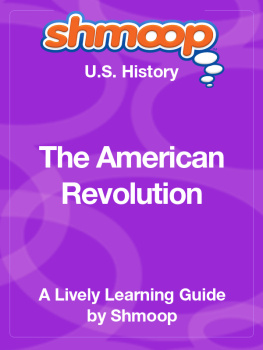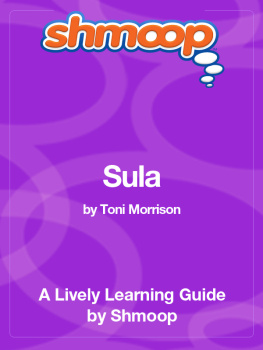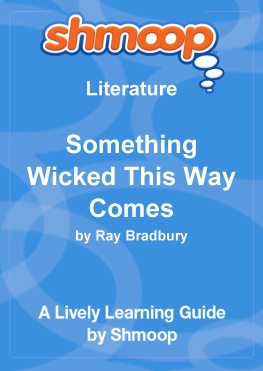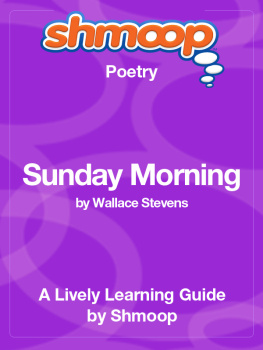
Table of Contents
In a Nutshell/Overview
The American Revolution began as a transatlantic dispute over parliamentary authority and policy, as American colonists chafed against British measures to reconsolidate their hold over their North American empire. This difference of opinion grew into a crisis of authority when colonists expressed their opposition by rioting, burning effigies of English officials, organizing vigilante associations, and pledging boycotts of imported goods. The colonists did not initially think of themselves as waging a war for independence, but rather believed they were defending their natural rights as Englishmen to resist misguided and corrupt government officials and representatives. With every new British assertion of authority, the colonists redoubled their activism, and the stakes got higher and higher. The colonists' faith in their sovereign, King George III, was dashed by his rejection of their appeals and his condemnation of their protests as an unlawful rebellion. Once they lost all faith in the righteousness and reason of the monarchy, the American Patriots rejected it outright and set forth not only to win independence but also to build a new kind of society in place of the old.
Why Should I Care?
If you don't already recognize the importance of the American Revolution, chances are you won't be able to understand or appreciate most of what follows in American history. This is the beginning of it all, the creation of the United States of America as an (ostensibly) unified and independent country. The story of the Revolution lies at the heart of what makes our country unique in the history of nations. The revolutionary principles that led to the nation's founding continue to influence American society, as we still turn to the founding generation seeking guidance, inspiration, or even just a useful quotation to support one contemporary political claim or another. Whenever critics of current American policies argue that we are forsaking our historic role as a nation dedicated to freedom and equality, they are invoking the principles of the American Revolution (at least as they understand them). Similarly, proponents of current government policy often refer to the American Revolution and the principles of the founders to support their tactics. And when critics of patriotic sentimentalism seek to debunk the assumptions or myths of the past, they will often point to the paradox of slavery and freedom that underlay the Revolutionary period.
For our younger readers, guess what: many young Americans were your age when they signed up with the Continental Army and Navy, even if it was just to work as deck hands or play the drums or the fife for $8 a month. Enslaved children ran away with their mothers and fathers to gain their own freedom throughout the war, especially when the conflict distracted their owners. Some of these black boys and girls actually fought or provided forms of critical support (like helping the cooks, looking for firewood, and doing other day labor) on both the British and American sides. Young stable boys in Boston were some of the first to run across town and warn Paul Revere when they overheard British officials whispering about their impending march on Lexington in April 1775. Teenage girls carried out the dangerous job of relaying the Patriots' messages to one another. Other young women carded, spun, and wove clothing, stockings, and other important items to help maintain the colonial boycott on British goods and keep their brothers, boyfriends, and fathers protected on the battlefield and warm amidst the harsh cold of the winter army camps.
And for all our readers, young and old: Did you ever wonder whether American society and government might have turned out completely different from what we got? If you haven't, you should. For colonists from a wide variety of classes, regions, and backgrounds all envisioned independence differently. For nearly half a million enslaved Americans in the 1760s, the Revolution offered a priceless chance for freedom, whether by escaping to fight behind British lines or by rebelling, or by petitioning legislatures for emancipation, or by gaining freedom by fighting with the Americans. For some American white women, the Revolution offered a chance to eke out more liberties than they had possessed under the rule of English common law. For the masses of poor and middling yeoman farmers, artisans, mechanics, and merchants throughout the thirteen colonies, the creation of an unprecedented republican government from scratch offered not only freedom of trade with all the countries in the world, but the chance to participate in a more egalitarian society than had ever existed before. Although the hopes and expectations of many of these groups were ultimately disappointed, the Revolution did establish a set of principles that could be invoked later to make moral claims for a more just society.
Overview of The American Revolution
By the late eighteenth century, Americans enjoyed more liberties than most people in the world, and they paid lower taxes than the subjects of any other European state. Even as they declared their allegiance to the British monarch, they regions and societies because they found common ground in their grievances, their concerns about tyranny, and their notions of self-determination. They were defiant protestors but reluctant revolutionaries; in the beginning, the Americans sought reconciliation with their sovereign along with recognition of their rights.
Once the concepts of liberty and self-representation were lodged in the hearts and minds of the Patriots, the only remaining course of action was Parliamentary compromise or war. Long before the Revolution was ever waged on the battlefields at Lexington, Saratoga, or Yorktown, it was decided in the mansions of the Virginia gentry, the pulpits of the churches, the town halls of New England and the backcountry of Tennessee.
For the first time, the masses seemed to have absorbed and were acting upon their conceptualization of liberty and its meaning. Their actions-and preexisting local feuds-often profoundly influenced the response of colonial elites from the Hudson River Valley to the plantations of the Chesapeake. Dense, sophisticated seventeenth- and eighteenth-century political philosophies of the Enlightenment were now articulated in simple, easy-to-read pamphlets by revolutionaries like the Englishman Thomas Paine. Colonists demanded representation, and in the process, accountability on the part of their leaders. The underlying message of the growing tension with British Parliament was the American notion that government exists to serve and protect the people. When it fails to do so, the people can revolt and establish a new government that serves their interests.
Meanwhile, whole segments of the colonial population for whom the rhetoric of freedom was never intended capitalized on its potential for radical change. Slaves seized their own freedom by escaping, fighting behind British lines, enlisting with the Continental Army, or plotting insurrections to take advantage of the social upheaval that surrounded and distracted their masters. They understood the language and meaning of liberty and they pressed for a fuller realization of the revolutionary promise. Many blacks and whites recognized all too well the inherent hypocrisy in waging a war for independence while tolerating human bondage in their midst. Many women also saw the possibility for change that might improve upon their own lives by giving them more individual as well as nationalistic self-determination. Colonial ladies could express their dedication to the cause and derive a sense of self-importance and patriotism by fundraising, spying, weaving homespun, and delivering messages across enemy lines. For white women and all African-Americans, the Revolutionary War offered at least a chance to expand on rights and liberties that had been circumscribed before. When American victory could not guarantee emancipation or equal rights, some groups sought to achieve their aims by allying with the enemy.



















